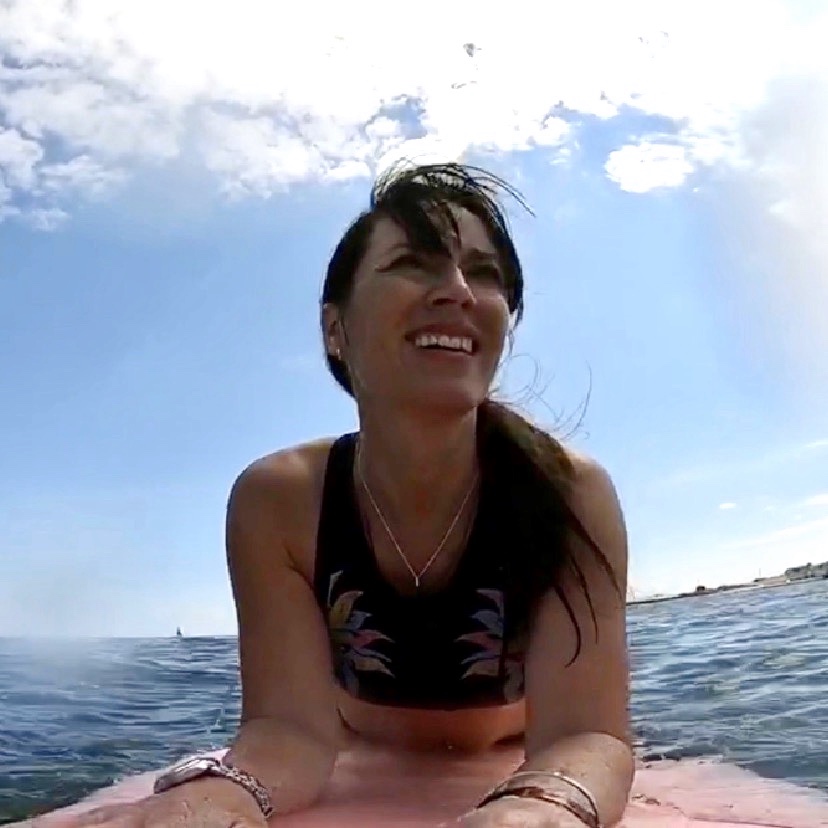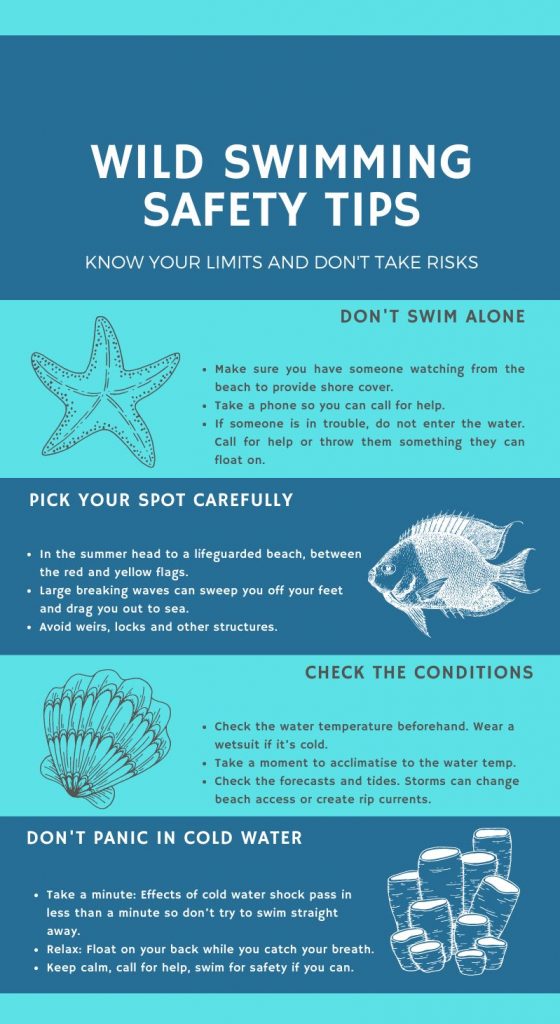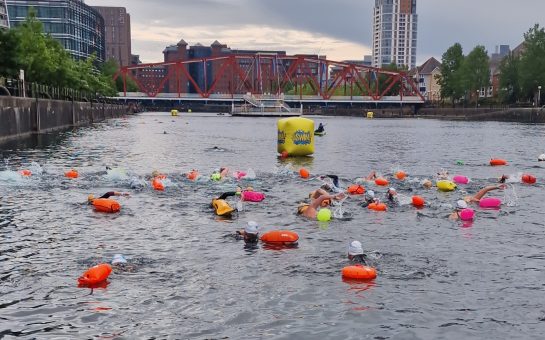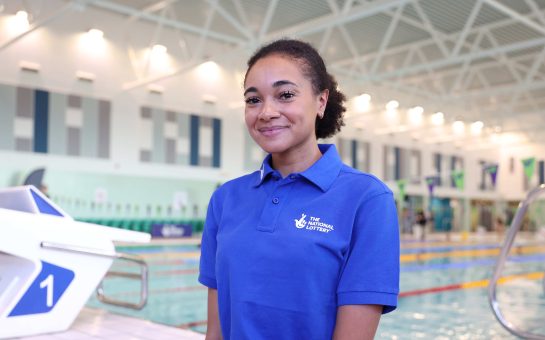In June 2020, cold water enthusiast Hayley Dorian posted on her Instagram account asking if anyone wanted to join her for a dip in the North Sea off the coast of Sunderland where she lives.
Used to having this request heartily rejected by her friends and family, Hayley was surprised to receive an enthusiastic response on social media.
When she arrived at Seaburn Beach the following Sunday expecting to see one or two women, she was greeted by around 25.
View this post on Instagram
Since then, wild sea swimming has spread like wildfire along the North East Coast, with five locations in England and four in Scotland running groups under the name Wild Sea Women, as well as an Ice Guys group, founded by Chris Nicholas.
At the height of lockdown up to a hundred women were attending the Wild Sea Women sessions.
Why has wild swimming increased over the pandemic?
A trends report by Outdoor Swimmer estimated that in 2020, participation in outdoor swimming in the UK increased by 1.5-3 times since 2019.
“Over lockdown I think people wanted to do it for the freedom – you feel free in open water,” said Hayley.
“People feel better and get addicted to it. It’s also the buzz of being together in the sea and having that connection with other people. It’s so lovely seeing how much it benefits people.”

Stand-up comedian Anja Atkinson found herself replacing the rush of being on stage with the rush of being in freezing cold water on Boxing Day, 2021.
Since then she has gone to the beach in Tynemouth once or twice a week to get her fix of cold water therapy.
“You feel nervous and you feel a lot of adrenaline – and you feel like ‘why am I doing this,’” said Anja. “But you get such a rush.
“You feel really centred, really focused afterwards. It’s almost like proving something to yourself, that you can do it. It’s like a strength or an invincibility thing.”
But why do people do it to themselves?
“Ever since I was really young I loved the buzz of cold water,” said Hayley. “When I was a teenager I took cold showers, I didn’t understand the science behind it, but it felt good.
“It was only when I started learning yoga that I learned about the ancient yogis who took cold showers for the health benefits.”

Hayley’s thirst for cold water led her to later discover the ‘Wim Hof Method’, developed by Dutch endurance athlete Wim Hof.
The method comprises three pillars: breathwork, cold water exposure, and commitment to the practice. It claims to offer a whole host of benefits including increased energy, reduced inflammation, fortified immune system and elevated mood.
“The idea is that anything is possible if you send your mind there first,” said Hayley.
“Your initial fight or flight response is to get out of the cold water – but if you can train your mind to overcome this, the idea is you can overcome other stresses in your life.”
We know that being in cold water feels great for many people. But why?
“We actually don’t know why it makes people feel good,” said Mike Tipton, Professor of Human and Applied Physiology at Plymouth University.
“Is it being at the beach, or is it meeting other people, or having a hot chocolate when you get out? Or is it actually the cold water? We have no idea.
“Going into cold water is a powerful stimulus. It releases fight or flight hormones, and other mood altering hormones like serotonin. So we know some physiological effects take place, but we are still unsure of the long term effects on conditions like depression.”
Mike explained that biologically speaking we are tropical animals and, having migrated from our equatorial origins, we have used our intellect to recreate these conditions with heating and warm clothing.
But our convenient modern lifestyle also means we rarely put our bodies in the kinds of situations that were typical when humans were hunter-gatherers.
“We have become thermostatic,” said Mike. “Humans have evolved to the point where we don’t stress our bodies at all in some cases.
“You only have to go back a short while and humans were hunting, exercising intensively, being exposed to cold environments. Now most people can go through a whole day without exercising or experiencing any thermal stimulus.
“Lockdown has intensified this experience for people – people feel a need to go out in the rain or the sun – innately we know that we need to challenge the body and perturb those functions to maintain health.
“That could explain the drive for cold water swimming, and why it is making people feel so good.”
“These are all hypothetical theories which have some basis in evidence,” added Mike. “But we need to do more studies, and there isn’t much funding available for this kind of research.
“It’s also possible that the benefits come from a purely placebo effect, which can be very powerful. I’m happy to leave it there – if people are feeling good and they are doing it safely then great.”

How safe is wild swimming?
Like Hayley, over lockdown Mike noticed an increase in the number of people attending his webinars about keeping safe in cold water, with around a thousand people signing-up within days.
In 2020, 254 people died from drowning in the UK, eight more than the national average, according to the Water Incident Database (WAID). This does not reflect the number of people who have survived drowning but are left with serious injuries.
Safety concerns related to open swimming have risen alongside the activity’s recent surge in popularity.
“People have been going into cold water for years for health reasons, but it is a double-edged sword,” said Mike. “Cold water is a hazardous environment for a tropical animal.”
Cold water shock, which can lead to drowning, is triggered in water temperatures lower than 15⁰C, and the average temperature of UK waters is 12⁰C.
Many people who die on the coast live inland, and often the issue is a lack of awareness of safety issues. Mike speaks to many people in the UK who do not know what a tide is. This is why it so important to be aware of the risks and prepare before wild swimming.
“But I’m not saying not to do it if it is helping people to feel better,” said Mike. “My aim is to help people maximise the beneficial effects while minimising the risks.”
Find out more about wild water swimming in Britain, and how to do it safely.
Find a spot to open swim in Manchester
Main photo by Hayley Dorian



